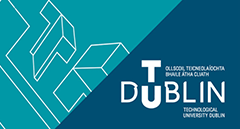Abstract
Singapore has a similar population to Ireland and gross domestic products (GDPs) for both countries are comparable. However, culturally and in other respects, the two republics are very different. Unemployment in Ireland is six times higher than in Singapore where GDP has almost doubled since 2007 but has fallen by nearly 11% in Ireland in the same time-span. One aspect of life in both countries transcending cultural differences is the importance placed on tertiary education. The Irish and Singaporean people share a deep commitment to education and the imperative of building and maintaining a knowledge economy is central to both societies. Employment in higher education in Singapore is more tenuous than in Ireland and it is common for a lecturer who is considered to have underperformed to not have a contract renewed. Irish higher education adheres closely to European policies and practices, particularly in adoption of quality assurance procedures. Consequently, it is expected that similar bachelor degree programmes in Ireland, for example in Mechanical Engineering or Physics, will be quality assured to a consistent standard across the higher education system. Quality assurance (QA) differs markedly in both states. For instance, QA in the National University of Singapore (NUS) is typically managed by internal committees, augmented by ‘Visiting Committees’. The multitude of courses offered by private colleges in partnership with UK universities are subject to the QA procedures of the respective universities and hence are regulated by the UK Quality Assurance Agency for Higher Education (QAA). However, an internal tertiary programme may or may not follow a strict QA procedure. If it does, the QA policies are drafted by the institution’s staff and are based on the requirements of Singapore’s Council of Private Education (CPE). Hence it is possible that the standard set may be inconsistent with the standard demanded by overseas QA regulations. In cases where QA procedures are not implemented, there can be little confidence among stakeholders in respect of the quality of the programme and standards may be arbitrary. Quality assurance of Irish higher education is coordinated through Qualifications and Quality Ireland (QQI), a state body responsible for the review of institutions who usually operate their own quality assurance systems. In some cases, QQI takes direct responsibility for quality assurance within smaller institutions, while also taking direct responsibility in other education sectors, such as the further education sector. There is a widely held perception amongst stakeholders in higher education in Singapore that internal programmes in tertiary education offer lower quality than the external tertiary programmes which are affiliated to well-established, mainly British, universities. Many factors have influenced this view, leading to its reinforcement and wide acceptance. These factors are discussed here and a simple but telling case study is offered. The practices of private colleges running their own internal Diploma and Advanced Diploma programmes are evaluated by observing specific situations. Comparisons are made with similar practices of colleges that run external Diploma and Advanced Diploma programmes under the auspices of UK universities and practices followed in private colleges and institutes of technology in Ireland. In conclusion, the need for uniform quality procedures across the Singaporean higher education system is highlighted and some necessary steps in achieving this requirement are advanced.
Creative Commons License

This work is licensed under a Creative Commons Attribution-NonCommercial-Share Alike 4.0 International License.
Recommended Citation
Batcha, Sherin; Jerrams, Stephen; and O'Leary, Ciaran
(2015)
"A Critique of Singaporean Internal Tertiary Education Programmes offered by Private Colleges: A Brief Comparison with Ireland,"
Irish Journal of Academic Practice:
Vol. 4:
Iss.
1, Article 2.
doi:10.21427/D7ZT6F
Available at:
https://arrow.tudublin.ie/ijap/vol4/iss1/2
DOI
10.21427/D7ZT6F

